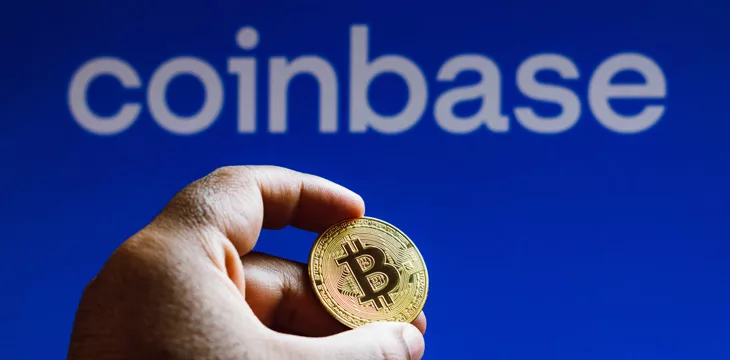|
Getting your Trinity Audio player ready...
|
Coinbase (NASDAQ: COIN) says the latest legal backhand by the U.S. Securities and Exchange Commission (SEC) is merely a flesh wound, even as the digital asset exchange plots the removal of the Democratic politicians who appointed their SEC nemesis.
Last Friday (15), the SEC informed Coinbase’s chief legal eagle, Paul Grewal, that it was rejecting the exchange’s latest request/demand for ‘a new regulatory framework’ specifically addressing digital assets. The SEC said the framework described in the Petition for Rulemaking that Coinbase submitted in July 2022 “is currently unwarranted.”
The SEC notes that Coinbase’s petition failed to include the “text or the substance of any proposed rule” as required by the Commission’s Rules of Practice. Instead, Coinbase submitted “an outline to frame the topic” and more than 100 questions that Coinbase “believe[s] are important to consider.”
The SEC disagreed with Coinbase’s argument that the “application of existing securities statutes and regulations to crypto asset securities, issuers of those securities, and intermediaries in the trading, settlement, and custody of those securities is unworkable.”
The SEC also reminded Coinbase that it’s the SEC that gets to decide “whether and, if so, how to alter the existing regulatory regime.” Furthermore, the SEC’s decisions are impacted by a variety of factors, including information derived from SEC probes of individuals/entities suspected of violating U.S. securities laws, a category that includes Coinbase.
The SEC sued Coinbase in June for operating as an unregistered securities exchange, broker, and clearing agency. The SEC found fault with Coinbase promoting a whole bunch of utility-free tokens and token-staking products that ticked all the boxes of the Howey test for identifying financial securities. The parties are set to square off in oral arguments in front of U.S. District Judge Katherine Polk Failla in a Manhattan court on January 17.
Grewal was quick to tweet Coinbase’s intention to appeal the SEC’s rejection of its petition to the U.S. Court of Appeals for the Third Circuit. The petition for review was filed that same day, indicating Coinbase’s advance recognition that the SEC was unlikely to conclude that the exchange should be left unsupervised to continue flogging utility-free tokens to unwitting suckers who’ve been led to believe that ‘number’ only goes up.
Grewal characterized the rejection as the SEC’s “abdication of its duty.” Grewal claimed that “no one looking fairly at our industry thinks the law is clear or that there isn’t more work to do” while griping about “legal positions that change month after month.”
The reality is that the SEC has proposed some rules for the digital asset sector. The problem, as Coinbase sees it, is that these guardrails would complicate Coinbase’s efforts to turn its first quarterly profit in nearly two years.
SEC chairman Gary Gensler issued his own statement supporting the rejection of Coinbase’s request, emphasizing that “[e]xisting laws and regulations apply to the crypto securities markets” and there was no reason to think that investors who bought digital assets were “less deserving of the protections of our securities laws.”
BONK go up
Coinbase has clearly adopted an ‘in for a penny’ strategy regarding the SEC, seemingly acting in ways deliberately intended to provoke a negative reaction. That included last week’s announcement that Coinbase would list the Solana-based BONK token, the value of which roughly tripled over the next couple of days.
To be clear, BONK does nothing. There’s no grand BONK project, no BONK goals, no lofty BONK aspirations about making this world a better place. No, there’s just the possibility that, with the help of some high-profile exchanges (Binance soon followed Coinbase’s listing lead), BONK holders—particularly the founders who control over one-fifth of its supply—could be moon-bound like it was 2021 all over again.
Nevermind that Coinbase used to celebrate its strict vetting process for listing new tokens, requiring some evidence that a token “helps solve a problem, creates a new market, addresses an unmet market need, or creates value for network participants.”
Coinbase also used to require some evidence of “utility from obtaining, holding, participating, or spending the token.” Teams behind token projects were also required to identify “a clear and compelling reason for the native digital asset to exist.”
Nowadays, Coinbase simply asks token projects to fill out a listing application. Presumably, there’s some secondary conversation that ensures founders are willing to prime the FOMO pump, thereby ensuring significant volumes of speculative flipping from which Coinbase can reap desperately needed transaction fees. Regulators like the SEC pose a threat to this value-extraction model, and thus, Coinbase will do everything in its power to undermine regulatory authority.
Meet you in the lobby
As if on cue, Coinbase’s name surfaced Monday in a list of supporters of Fairshake, a new super political action committee (PAC) aimed at boosting candidates who “support American crypto and blockchain innovation and responsible regulation in the forthcoming 2024 elections.”
Fairshake claims to have already raised $78 million (in only three months) from Coinbase and a host of other ‘crypto’ luminaries. It’s perhaps telling how many Fairshake contributors have similar legal issues with the SEC, including the U.S.-licensed Kraken exchange, Gemini exchange co-founders Cameron and Tyler Winklevoss, and Ripple Labs (issuer of the XRP token).
Other contributors include a standalone donation from Coinbase CEO Brian Armstrong, Circle (issuer of the USDC stablecoin), and market-makers Cumberland and Jump Crypto. There’s also a host of venture capitalists, including Andreessen Horowitz (a16z), Cathie Wood’s Ark Invest, Blockchain Capital, Multicoin Capital, Paradigm, and Fred Wilson (Union Square Ventures).
Axios quoted ‘a source close to Fairshake’ who claimed that the new super PAC had “created a $100 million headache for some congressional Democrats,” alluding to the perception that congressional Republicans will offer ‘crypto’ a smoother regulatory ride. This source said Dem candidates would now have to decide whether they were ‘for’ crypto-owning Americans “or for Gary [Gensler.]”
As of October 12, Fairshake had only spent $292,206 of its war chest, nearly half of which went to Rep. Patrick McHenry (R-NC), who chairs the House Financial Services Committee but recently announced that he won’t be seeking re-election next year.
It wasn’t so long ago that Armstong was warning Coinbase staff not to express political opinions at work, urging them to ‘focus on what unites us, not what divides us’ while suggesting staff who don’t abide by this mantra should shuffle on. Roughly five percent of Coinbase staff reportedly left the company following Armstrong’s post, perhaps wary of the dangers of affiliating themselves with a self-interested single-issue voter mindset.
The looming end of civilization as we know it may explain why Coinbase insiders continue to dump their shares in the company like the steaming hot potatoes they are. The recent unwarranted and artificial pump in the price of BTC, ETH, and other tokens has had a knock-on effect on Coinbase’s share price, which currently stands at around $150, nearly triple their value when 2023 began.
Coinbase co-founder Fred Ehrsam III leads the pack with nearly $42 million worth of sales since November 29. Armstrong sold another $3.7 million worth last week, bringing his 30-day total to nearly $17.7 million. Grewal has unloaded around $5.3 million, while various other C-suite denizens have also seen the wisdom in selling high. Never mind who they’re selling out in the process.
Follow CoinGeek’s Crypto Crime Cartel series, which delves into the stream of groups—from BitMEX to Binance, Bitcoin.com, Blockstream, ShapeShift, Coinbase, Ripple, Ethereum,
FTX and Tether—who have co-opted the digital asset revolution and turned the industry into a minefield for naïve (and even experienced) players in the market.

 02-18-2026
02-18-2026 




